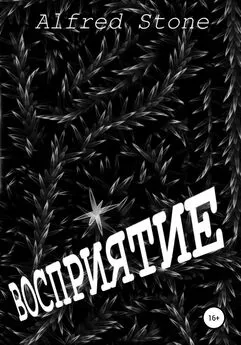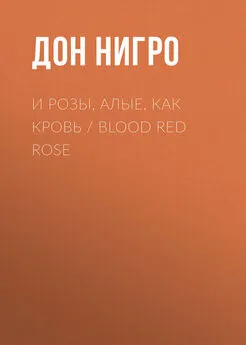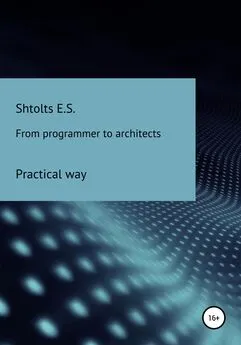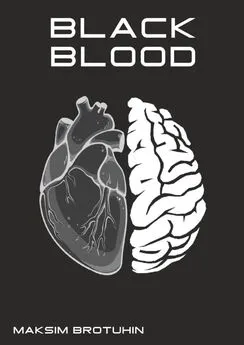Donna Leon - Blood from a stone
- Название:Blood from a stone
- Автор:
- Жанр:
- Издательство:неизвестно
- Год:2005
- ISBN:нет данных
- Рейтинг:
- Избранное:Добавить в избранное
-
Отзывы:
-
Ваша оценка:
Donna Leon - Blood from a stone краткое содержание
Blood from a stone - читать онлайн бесплатно полную версию (весь текст целиком)
Интервал:
Закладка:
Brunetti had no idea what sort of weapons, or how many, could be bought for six million Euros, assuming this to be the minimum raised by the sale of the diamonds. Television movies had, over the years, turned Uzi and Kalashnikov into household words; Brunetti tried to calculate the volume of the disassembled machine-guns that could be bought for that sum, but he made a hopeless muddle of it.
The Count continued, ‘They would have to get to a port: easily enough done in trucks. Then there would be the false bills of lading, the Customs inspectors to be paid, the shipping company persuaded to be accommodating. And then the unloading at whatever port of entry was used, where it would all be put on trucks.’ He paused to give Brunetti an idea of the possible complications here. ‘So whoever was arranging this would need a great deal more money for these — what shall I call them? — incidental expenses, and then he would need someone at the other end to collect and, er, distribute whatever weapons he managed to acquire.’ He placed a hand on Brunetti’s arm and said, ‘It would require an efficient organization, at least there. Here, you’d need someone to sell the diamonds and buy the arms. Presumably your dead man.’ The Count raised a hand and wiped at the condensation on the window, then took out a handkerchief and dried his hand. The clean window showed them little more than the wet one had.
‘What I don’t understand,’ the Count said, ‘is the attempt to sell the diamonds privately. These things are generally taken care of beforehand.’
‘I beg your pardon,’ Brunetti said.
‘Usually, the deal is arranged before the diamonds are brought here, to Europe, and often at the governmental level. Very often it’s a simple barter arrangement: stones for guns, so the complication of moving large amounts of money is avoided,’ the Count said, increasing Brunetti’s uneasiness by saying, ‘and the transport can usually be arranged by the addition of a percentage charge.’
Brunetti wondered what the phrase ‘governmental level’ might mean, but before he could ask, he felt the slowing of the engine as the boat approached the narrow channel leading to the airport dock. He looked at his watch. ‘What time does your plane leave?’ he asked.
‘Don’t worry,’ the Count said. ‘It will wait.’ The boat pulled up to a dock and Massimo glanced into the cabin, but when he saw that the Count did not get to his feet, he backed out into the channel and set the motor to idling. Brunetti glanced outside, at the abandoned airport terminal, and saw that it had stopped raining.
‘The question you haven’t asked, Guido, is why someone would kill him.’
‘To steal the diamonds?’
‘Possibly,’ the Count answered. ‘But I doubt that either one of us believes that.’
‘Then to prevent their sale,’ Brunetti countered.
‘Their sale or the purchases that would be made with the money?’
‘That, I think,’ Brunetti agreed.
‘And that’s why you want to know who the likely arms seller would be? To lead you to your dead black man?’ the Count asked, bringing the conversation back to its point of origin.
‘Yes. It’s the only place I can think of to start at.’
‘If I might comment on this, Guido,’ the Count said deferentially, ‘it sounds as if the arms dealer would be the least likely to kill him. It would stop the sale, and the people who sell weapons aren’t usually in the business of killing.’
Brunetti let that one lie.
‘It is the involvement of those two agencies of our government,’ the Count said, ‘that puzzles me.’ He looked down and flicked a speck of dust from his trousers, then back at Brunetti. ‘It is not unusual for sales of weapons — after all, they are one of our most successful industries — to be, well, to be accommodated by the government. But they usually do that when the purchaser is known to them.’
‘You mean another government?’ Brunetti asked.
‘Yes. Or, just as easily, some group eager to replace an existing government.’ His smile was wolfish. ‘The Americans are not the only people who welcome the removal of inconvenient politicians and their replacement by those better disposed towards their business methods.’ Again, that smile. ‘Even better, at least from an economic point of view, is to see that hostilities continue more or less indefinitely so that the process of replacement can be prolonged for as long as there are natural resources that can be sold to pay for new weapons. Ideally, by both sides.’
The Count gave Brunetti a long look, raised a hand as if to reach across and touch his shoulder, but did not; he pressed his palm back on the seat beside him. ‘It is the involvement of either one of these ministries that makes me think — I might even say fear — that this could be a very dangerous situation.’
Before Brunetti could answer, the Count went on, ‘No, don’t tell me that it has already been shown to be dangerous because that man is dead. I mean for you, Guido, for you and for anyone they perceive as being in their way.’
A taxi passed them going faster than it should and slammed its motor into reverse just metres from the dock. Its wake caught them broadside, flinging Brunetti forward so that he had to brace himself on the edge of the seat opposite him.
‘Come, it’s impossible to stay here,’ the Count said. He went forward, stooping, and tapped on the glass of the door. Massimo engaged the motor and slid the boat alongside the dock, grabbed a rope and jumped ashore. He held the boat tight to the side while the Count stepped up on to the dock. Leaning back down, he said, ‘No, Guido, don’t bother. Massimo will take you back.’
As Brunetti waited, the Count said, ‘I’ll make some calls and let you know whatever I can.’
A sudden wave slapped the side of the boat, and Brunetti looked down to check where he had placed his feet. When he looked back up at the Count, a man in a chauffeur’s uniform was standing next to him, and at the kerb stood a dark grey Lancia, its back door open and its motor running.
Massimo jumped back into the boat and backed quickly away from the dock. ‘Shall I take you to the Questura, Dottore, or would you like to go home?’
‘Take me home, please, Massimo,’ he said. When he looked back at the land, the car was pulling slowly away from the kerb to take the Count the three minutes to the terminal.
As Massimo took him back towards the city, Brunetti recalled the Count’s precise words. He had not said that he would make calls and tell Brunetti whatever he learned, but that he would tell him whatever he could. Brunetti felt suddenly uneasy and wondered if, like Claudio, he was a man who put too much trust in his friends.
23
The next morning, as Brunetti stood alone in the living room, drinking his second coffee, the brightness of the day lured him out on to the terrace. Though it was hardly springlike, it was easily warm enough to allow him to stand there for a few minutes and watch the light reflected on the wet tiles of the roofs around and below him. There was no sign of a cloud; in fact, the light hurt his eyes, even at this hour. Much as he had welcomed the rain, he prayed that this brilliant day would last and give them all a chance to shake off the gloom of the previous days.
When he felt the cold begin to penetrate his jacket, he went back inside, set his cup and saucer on the table in the living room, then thought better of it and took it into the kitchen and put it in the sink. He considered taking scarf and gloves, but he decided to invest in hope for the day and so left them and put on only his overcoat before he let himself out of the apartment.
The weather seemed to have infected people on the street; even the newsagent, whose face was usually as grim as the headlines, managed a gruff ‘ grazie ’ as he gave Brunetti his change. Brunetti decided to walk: if this was the global warming that Vianello was always banging on about, then surely there were worse things facing the world.
He turned right along the Canale di San Lorenzo and paused to study the scaffolding on the old men’s home, searching for signs of progress. It appeared that the windows were finally in place on the third floor: Brunetti could not remember having seen them before. A workman climbed down the scaffolding and walked across the campo and Brunetti, his mind idling, followed him with his eyes. As the workman let himself into a wooden shack, Brunetti noticed two men sitting on one of the benches in the campo , two black men. The bench was set parallel to the canal and thus permitted the men to look across at the façade of the Questura.
It was too far for him to be sure, but he thought the men were the one he had defined as the leader and the very thin young man who had raised his hand to Brunetti. Brunetti continued towards the bridge. He stopped there and gazed across the canal. He was sure the two men recognized him. Their heads moved closer together, and he watched them talk, saw their hands move as first one, then the other, gestured across the canal, either at him or at the Questura. The young man used his left hand to point; his right hand sat useless in his lap. No sound of voices came across the canal, and so it was rather like watching a television with the volume turned down. The older man turned away from the other and raised a hand in Brunetti’s direction, then waved his fingers quickly down towards the ground and then again, signalling Brunetti to come and join them. The man then turned back to the other, placed his hand on his knee, and spoke to him.
The younger man nodded, either in agreement or resignation.
A noise to his right caught Brunetti’s attention and he turned towards it. Beyond the other bridge, a police launch was turning into the canal, its blue light flashing. Heedless of the waves it created on either side, it came towards him, shot under the first bridge, and pulled noisily up to the Questura.
The pilot, the one who had taken him home for lunch, jumped on to the dock and secured the rope to a hawser, then stood back and saluted. First to step up on to the dock were two guards, both wearing bulletproof vests, machine-guns held across their chests. Then in quick succession came the Questore and then Vice-Questore Giuseppe Patta. A moment later a man in a business suit whose face was vaguely familiar to Brunetti emerged from the cabin and followed the others. The guards seemed to pay scant attention to the men alighting from the boat, their eyes busy roaming up and down the calle and then across to the campo on the other side of the canal. Brunetti allowed his eyes to follow theirs and was not at all surprised to see that the two black men had disappeared.
He did not recognize either of the guards with the machine-guns and so remained where he was, making no attempt to approach the door of the Questura. The two guards went to the building, and one of them held open the door. When the three civilians were inside, the guards followed them. The door closed.
Brunetti went over to the pilot, who was securing the stern of the boat with a second rope. He noticed Brunetti approaching and saluted.
‘What’s that all about, Foa?’ Brunetti asked, hands in his pockets, tilting his head back towards the Questura.
‘I’m not sure, sir. I had to pick up the Vice-Questore at home at eight-thirty, and then we went to the home of the Questore and got him.’
‘And the guys with the guns?’ Brunetti asked.
‘They were with the one who gave me the order, sir, the civilian. He showed up here at about eight and handed me a letter.’
Читать дальшеИнтервал:
Закладка:
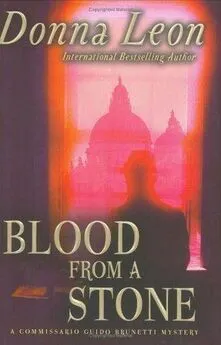
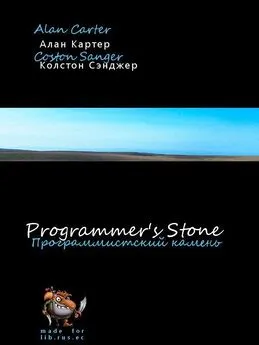
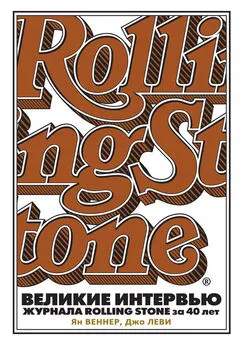
![О Генри - С высоты козел [From the Cabby's Seat]](/books/1083418/o-genri-s-vysoty-kozel-from-the-cabby-s-seat.webp)
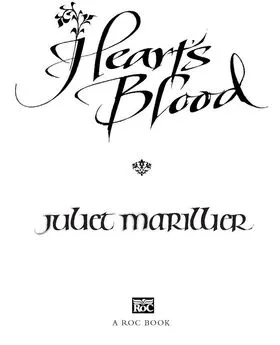
![Инна Владимирова - Blood diamond [litres самиздат]](/books/1149324/inna-vladimirova-blood-diamond-litres-samizdat.webp)
